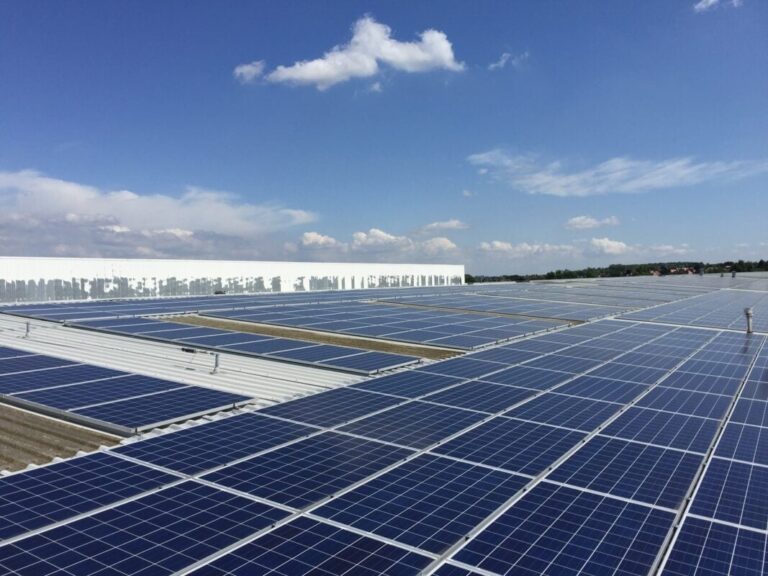The journey to a net zero future by 2050 is a significant undertaking. To achieve this goal, annual energy generation is estimated to need to double and low-carbon energy generation to quadruple. That is a monumental task, which will require a huge deployment of renewable technology.
The government plans to accelerate the pace of decarbonization and has estimated that its mission to deliver clean energy by 2030 will require at least a doubling of current onshore wind capacity, and a three- to four-fold increase in current offshore wind and solar energy capacity.
Government initiatives such as the Contract for Difference (CfD) program continue to play a vital role in financing the construction of renewable sites, and we welcome the increased budget recently announced by the UK Government to enable us to make progress in what is a challenge. global race and the restoration of investor confidence. The CfD is essentially a good mechanism, but in light of the recent rounds that have not delivered enough new projects to keep us on track to meet these 2030 and 2050 targets, we also need additional methods to encouraging renewable energy.
Companies also play a crucial role in achieving net zero emissions and must continue to pave their own way to reduce their carbon emissions. More than half of Britain’s largest companies have committed to eliminating their contribution to carbon emissions by 2050. But this endeavor is far from simple. Tracking and reporting emissions across complex supply chains remains significant challenges, meaning companies are currently on track to reduce emissions by just 40%.
Bridging the gap to net zero with corporate PPAs
Corporate Power Purchase Agreements (CPPAs) offer a powerful solution. These agreements allow companies to purchase renewable energy from a new renewable site at an agreed fixed price. By doing this, companies will not only ensure a reliable, long-term sustainable energy supply in today’s tough wholesale market, but also drive meaningful change by driving investment in new sustainable locations.
Project developers benefit from financial security, in addition to the confidence to make a final investment decision on the new renewable site, supported by the corporate PPA, and ultimately build new sites that would otherwise not be possible without government subsidies.
This direct link between companies and sustainable projects ensures the traceability of the supply and allows companies to know exactly where their energy comes from. By providing complete transparency, corporate PPAs enhance a company’s ESG and carbon reduction strategy.
These unique agreements are among the strongest tools for companies to reduce and report scope 2 emissions. They can even open the door to financing schemes for public sector companies and the education sector. And for B2B suppliers, corporate PPAs offer companies the opportunity to demonstrate how they are reducing scope three emissions for their own customers.
While there are many ways companies can contribute to achieving net zero, such as installing solar panels or using electric vehicles, corporate PPAs offer a unique way to provide real additional energy. Through these agreements, companies are actively contributing large amounts of additional ‘utility-scale’ renewable energy to the electricity grid, moving the country closer to its targets.
Corporate PPAs also provide financial security to producers, encouraging further development, job creation and overall economic growth. With a fixed electricity price typically covering ten to fifteen years, the agreements provide greater budget certainty and risk management in a market that has been extremely volatile in recent years.
But despite the many benefits for both businesses and producers, corporate PPAs are currently responsible for less than five percent of total renewable generation on the grid. With many PPA-supported corporate renewable sites under construction, this figure is only set to increase. Embracing these agreements can help bridge the gap between renewable energy demand and supply and ensure a smoother transition to net zero, which together with the Government’s CfD program gives Britain the best chance to achieve its objectives.
Custom solutions for every company
EDF purchases the most renewable electricity of any energy supplier in Britain, with the highest contracted PPA market share, according to Cornwall Insight.
A recent example of a company benefiting from a corporate PPA is Tesco, which has helped develop four large new-build wind farms and five solar farms. Tesco’s latest corporate PPA will generate enough clean energy to power the equivalent of more than 80 average-sized supermarkets for a year. These PPAs will help Tesco achieve its target of achieving carbon neutrality in its own operations by 2035, and most importantly, make a positive contribution to achieving net zero targets in Britain.
Organizations looking to achieve net zero will continue to look for new and innovative ways to reduce emissions from their supply chain. With tailor-made corporate PPAs, companies can guarantee the maximum authenticity of their carbon credentials and help bring brand new, extra sustainable generation to the grid. And working with experts, like those from the EDF Business Solutions team, can make the whole process much easier.


